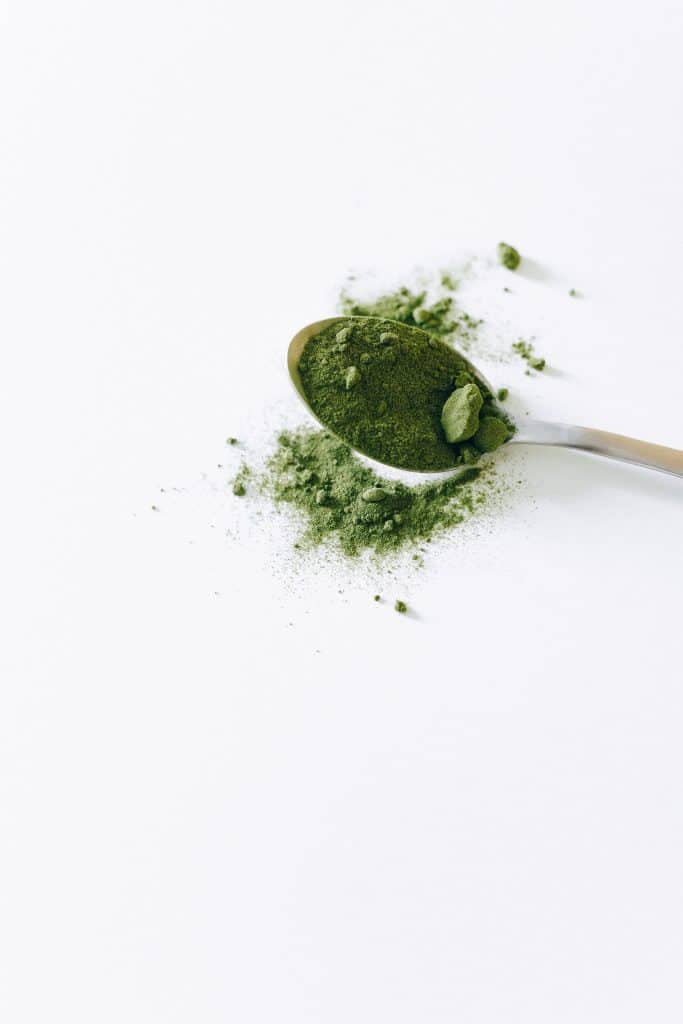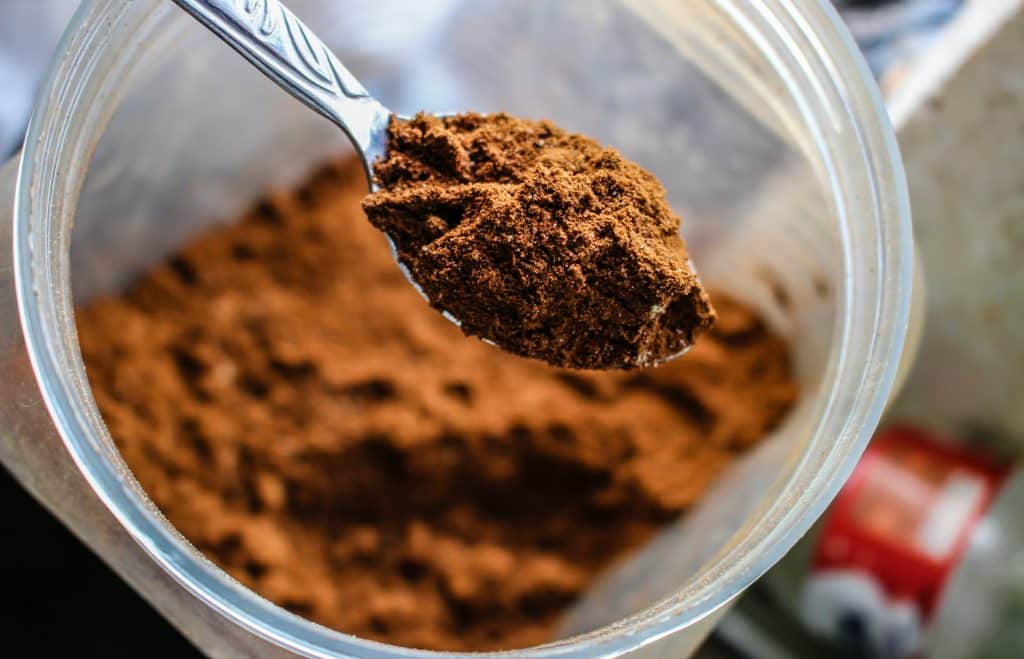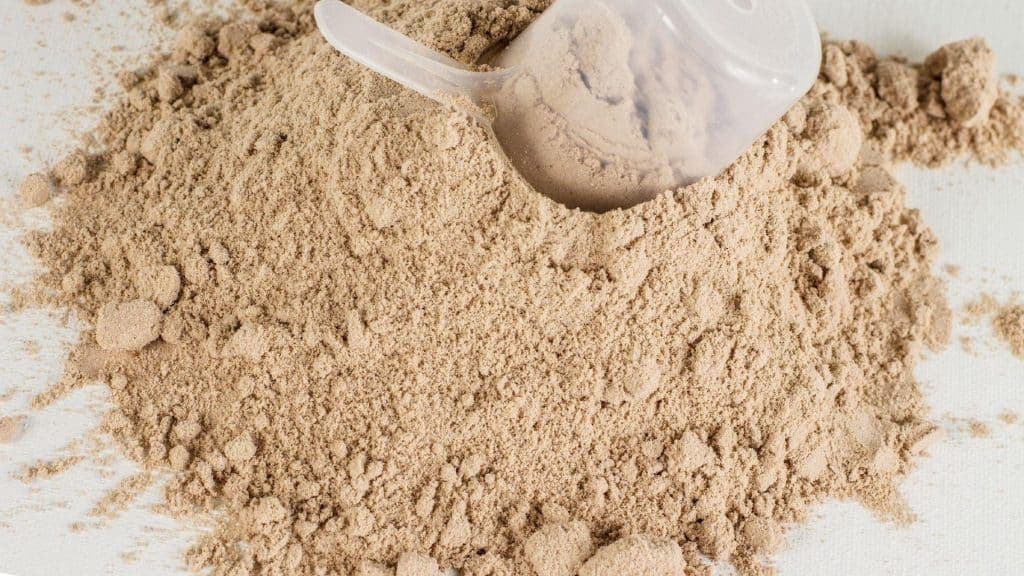UPDATED: May 09, 2023
Plant-Based Protein vs Whey Protein: As a fitness enthusiast, you've likely heard about protein powders and their role in muscle growth and recovery. With various types available, it can be difficult to determine the right one for you. In this article, we'll explore the differences between plant-based protein powders and whey protein, helping you make an informed decision.
Plant-Based Protein vs Whey Protein: Understanding Protein Powders

What are Protein Powders?
Protein powders are dietary supplements made from protein sources like soy, pea, rice, and whey. They are popular among athletes and people who are looking to build muscle mass, lose weight, or improve their overall health.
Protein powders come in different forms such as whey protein isolate, whey protein concentrate, casein protein, soy protein, and pea protein. Each type of protein powder has its unique benefits and is suitable for different dietary needs. For instance, whey protein is a fast-digesting protein that is ideal for post-workout recovery, while casein protein is a slow-digesting protein that is best consumed before bedtime to support muscle repair and growth during sleep.
Why Use Protein Powders?
Protein is an essential macronutrient that helps build and repair tissues in the body. When you exercise, your body breaks down muscle tissue, which needs to be repaired through protein synthesis. Protein powders can boost your protein intake and support muscle growth and recovery.
Aside from muscle growth and recovery, protein powders can also help with weight loss. Protein has a higher thermic effect than carbohydrates and fats, which means that your body burns more calories digesting protein than it does digesting carbs or fats. Protein also helps you feel full for longer, which can reduce your overall calorie intake and help you lose weight.
Convenient and easy to use, protein powders offer a practical solution for those seeking to supplement their diet. They can be added to smoothies, oatmeal, pancakes, and other recipes to increase their protein content. This makes it easier for people with busy lifestyles to meet their daily protein needs.
Find Your Ideal Whey Protein: Top 3 Powders of 2023
If whey protein is right for you, find the perfect one by exploring our top picks for the 3 Best Whey Protein Powders for 2023 here!
The Basics of Plant-Based Protein Powders
Protein powders are a popular supplement for athletes, fitness enthusiasts, and people who want to increase their protein intake. While whey protein is the most common type of protein powder, plant-based protein powders are becoming increasingly popular due to their many benefits.
Types of Plant-Based Protein Powders
Plant-based protein powders are made from various plant sources, including soy, pea, rice, hemp, and pumpkin seed. Each type has unique properties in terms of taste, texture, and nutritional profile.
Soy protein is a complete protein and is rich in amino acids, making it an excellent choice for vegetarians and vegans who may struggle to get enough protein from their diet. Pea protein is easily digestible and hypoallergenic, making it a suitable option for people with digestive issues or allergies. Rice protein is also hypoallergenic and is a good source of branched-chain amino acids (BCAAs), which are important for muscle growth and recovery. Hemp protein is high in fiber and omega-3 fatty acids, making it a great choice for overall health. Pumpkin seed protein is a good source of magnesium, which is essential for bone health.

Benefits of Plant-Based Protein Powders
Plant-based protein powders have several advantages over whey protein. Firstly, they are lactose-free and hypoallergenic, making them suitable for people with lactose intolerance or allergies. This means that people who previously could not use protein powders due to digestive issues can now enjoy the benefits of protein supplementation.
Secondly, plant-based protein powders are often lower in calories and fat and higher in fiber, making them an excellent choice for weight loss or people who want to limit their calorie intake. Fiber is important for digestion and can help you feel fuller for longer, which can prevent overeating and aid in weight loss.
Additionally, plant-based protein powders are more sustainable and eco-friendly compared to whey protein, which is derived from dairy products. The production of whey protein requires a significant amount of resources and can have a negative impact on the environment. Plant-based protein powders, on the other hand, are made from renewable resources and have a lower environmental impact.
Potential Drawbacks of Plant-Based Protein Powders
One disadvantage of plant-based protein powders is that they may not have the same digestibility and amino acid profile as whey protein. This difference could make them slightly less effective for building muscle mass and recovery, but this is not necessarily the case for everyone. It is important to choose a high-quality plant-based protein powder and ensure that you are getting enough protein and essential amino acids in your diet.
Another potential drawback is that some plant-based protein powders may contain added sugars or artificial flavors and sweeteners, which can negate some of the health benefits. It is important to read the label and choose a protein powder that is free from added sugars and artificial ingredients.
Overall, plant-based protein powders are a great option for people who want to increase their protein intake while also enjoying the many benefits of a plant-based diet. With so many different types of plant-based protein powders available, it is easy to find one that suits your taste preferences and nutritional needs.
The Basics of Whey Protein
Protein is an essential macronutrient that our bodies need to build and repair tissues, including muscles. Whey protein, in particular, has gained popularity among athletes and fitness enthusiasts due to its numerous benefits.

What is Whey Protein?
Whey protein is a type of protein that is derived from milk during the cheese-making process. It is a complete protein, which means it contains all nine essential amino acids that our bodies cannot produce on their own. Whey protein is available in several forms, including protein powders, bars, and shakes.
Whey protein is known to be a fast-digesting protein, meaning it is quickly absorbed and utilized by the body. This makes it an ideal choice for post-workout supplementation, as it can help to kickstart the muscle recovery process.
Benefits of Whey Protein
There are several benefits of consuming whey protein, including:
- Muscle Growth and Repair: Whey protein has a high amino acid profile, which makes it an effective supplement for muscle growth and repair. It provides the body with the building blocks it needs to repair and rebuild muscle tissue after exercise.
- Weight Management: Whey protein can help to promote feelings of fullness and satiety, which may aid in weight management efforts. Additionally, it has been shown to help preserve lean muscle mass during weight loss.
- Immune System Support: Whey protein contains immunoglobulins and lactoferrin, which can help to boost the immune system and protect against illness and infection.
- Reduced Inflammation: Whey protein has been shown to have anti-inflammatory properties, which can help to reduce inflammation in the body and improve overall health.
Potential Drawbacks of Whey Protein
While whey protein has numerous benefits, there are also some potential drawbacks to consider:
- Lactose Intolerance or Allergies: Whey protein is derived from milk, which means it may not be suitable for people with lactose intolerance or allergies.
- Calories and Fat: Whey protein powders can be higher in calories and fat than some plant-based protein powders, which may be a concern for those trying to manage their weight.
- Environmental Impact: The dairy industry has a significant impact on the environment, making whey protein a less sustainable option compared to plant-based protein powders.
Overall, whey protein can be a beneficial supplement for those looking to support muscle growth and repair, as well as overall health and wellness. However, it is important to consider individual needs and preferences when choosing a protein supplement.
Find Your Ideal Whey Protein: Top 3 Powders of 2023
If whey protein is right for you, find the perfect one by exploring our top picks for the 3 Best Whey Protein Powders for 2023 here!
Plant-Based Protein vs Whey Protein: Comparing Nutritional Profiles
When it comes to choosing a protein powder, it's important to consider the nutritional profile of each option. While both plant-based and whey protein powders provide a good source of protein, there are some differences to keep in mind.
Protein Content
As mentioned, both plant-based protein powders and whey protein provide around 20-25 grams of protein per serving. This makes them a great option for those looking to increase their protein intake, whether for muscle growth or overall health.
However, it's important to note that not all plant-based protein powders are created equal. Some may contain less protein per serving, while others may contain more. It's always a good idea to check the label and compare the protein content of different brands and types of protein powder.
Additionally, while both plant-based and whey protein powders provide a good source of protein, whey protein is considered a more complete protein source. This is because it contains all the essential amino acids required for muscle growth and repair.
While some plant-based protein powders may contain all the essential amino acids, others may lack one or more. This can make them a less complete protein source, although they can still be a good option for those following a plant-based diet.
Amino Acid Profiles
As mentioned, whey protein has a high amino acid profile, providing all the essential amino acids required for muscle growth and repair.
Plant-based protein powders may lack one or more essential amino acids, making them a less complete protein source. However, this can vary depending on the type of plant-based protein powder.
For example, pea protein powder is a good source of all the essential amino acids, while rice protein powder may lack one or more essential amino acids. Hemp protein powder is also a good source of all the essential amino acids.
Vitamins and Minerals
Plant-based protein powders, especially those made from pea protein and hemp protein, are rich in vitamins and minerals like iron, zinc, and magnesium.
Whey protein, on the other hand, is low in vitamins and minerals. While it does provide a good source of protein, it may be lacking in other important nutrients.
For those looking to increase their intake of vitamins and minerals, plant-based protein powders may be a better option. However, it's important to note that not all plant-based protein powders are created equal. Some may contain more vitamins and minerals than others, so it's always a good idea to check the label and compare different options.

Plant-Based Protein vs Whey Protein: Making the Final Choice
When it comes to plant-based protein powders vs whey protein, both have their advantages and disadvantages. Ultimately, the choice between the two will depend on individual needs, goals, and dietary restrictions. Plant-based protein powders are an excellent choice for people with lactose intolerance or allergies, those on a vegan or vegetarian diet, or those looking for low-calorie options. Whey protein is a popular choice among athletes and fitness enthusiasts, and those looking for a complete protein source. Regardless of the protein powder you choose, make sure to incorporate it into a healthy, balanced diet, and complement it with regular exercise for optimal results.
Elevate Your Nutrition: Best Low Carb Protein Choices in 2023
Make an informed decision for your nutrition by exploring the Best Low Carb Protein 2023 picks on Best Stuff for Girls. Click here to learn more!





